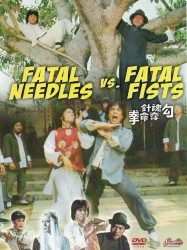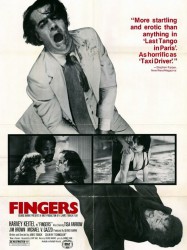Terang Bulan est un film de genre Drame réalisé par Albert Balink avec Rd Mochtar
Terang Bulan (1937)

Si vous aimez ce film, faites-le savoir !
Réalisé par Albert Balink
Genres Drame
Terang Boelan ([təˈraŋ buˈlan]; Indonesian for "Full Moon", Terang Bulan in the Perfected Spelling System) is a 1937 film from the Dutch East Indies (now Indonesia). Written by Saeroen, directed by Albert Balink, and starring Rd Mochtar, Roekiah and Eddie T. Effendi, Terang Boelan follows two lovers who elope after one is almost forced to marry an opium smuggler. The film was shot in the Indies and Singapore, and was partially inspired by the 1936 Hollywood film The Jungle Princess. It was aimed at native audiences and included keroncong music, which was popular at the time, and several actors from Balink's previous work Pareh (1936).
Terang Boelan was a commercial success in both the Indies and abroad, earning 200,000 Straits dollars in British Malaya. This success revived the faltering domestic film industry and inspired films aimed at Malay audiences in Malaya, creating a formula of songs, beautiful scenery and romance that was followed for decades afterwards. The Indonesian film historian Misbach Yusa Biran described it as a turning point in the history of Indonesian cinema for its catalytic effect on the industry's growth. Like many Indonesian films of the era, Terang Boelan has been lost since at least the 1970s.
Synopsis
Rohaya (Roekiah) must separate from her lover, Kasim (Rd Mochtar), so that she can marry her father's choice, the disreputable but rich Musa (Eddie T. Effendi). The night before the wedding, Kasim plays the song "Terang Boelan" for Rohaya, and they agree to elope. The following day, Rohaya and Kasim escape from Sawoba Island to Malacca, where Kasim begins work at a drydock and Rohaya keeps busy as a housewife. They discover that Kasim's old friend, Dullah (Kartolo), has lived in Malacca for some time.Acteurs
Commentaires
Postez un commentaire :
Suggestions de films similaires à Terang Bulan
Il y a 10 films ayant les mêmes acteurs, 1 films avec le même réalisateur, 61705 ayant les mêmes genres cinématographiques, pour avoir au final 70 suggestions de films similaires.Si vous avez aimé Terang Bulan, vous aimerez sûrement les films similaires suivants :

Siti Akbari (1940)
Acteurs Roekiah, Rd Mochtar, Kartolo, Annie Landouw
Siti Akbari (Roekiah) is living happily with her husband. When he begins to wander she stays faithful and he eventually comes back to her.

Fatima (1938)
Acteurs Roekiah, Rd Mochtar, Kartolo
Fatima (Roekiah) is in love with Idris (Rd Mochtar), the son of a poor fisherman on the island of Motaro. One day, the rich youth Ali (ET Effendi) comes to the island and tries to steal Fatima's heart. She, however, is unwilling to receive him and gives his gifts to Idris, so that the latter can sell them. Ultimately it is revealed that Ali is the leader of a gang, and the police trace him through a stolen ring he had given Fatima.

Roekihati (1940)
Acteurs Roekiah, Kartolo
The village girl Roekihati (Roekiah) goes to the city to find money so she can care for her ailing mother and father. She first works at the home of a rich playboy before going to become a singer at a restaurant; both of these jobs fail miserably. Eventually she marries Mansoer (Rd. Djoemala), a coupling to which Mansoer's father objects vehemently. With his family and friends urging him on, Mansoer begins to fall for a city girl named Aminah, ignoring Roekihati. However, when Mansoer sees that Roekihati is faithfully attending to him despite how he treats her he decides that he was wrong and returns to her.

Sorga Ka Toedjoe (1940)
Acteurs Roekiah, Annie Landouw, Kartolo
Rasminah (Roekiah) is living with her blind aunt Hadidjah (Annie Landouw) in Puncak, a village south-east of Buitenzorg (now Bogor). Hadidjah has been separated from her husband, Kasimin, for several years, ever since she accused him of adultery. Although she regretted the incident almost immediately, it was too late; a corpse resembling Kasimin was found floating in a river, and in her hurry to see the body Hadidjah was struck by a car, blinding her. Now she sings the kroncong song "Sorga Ka Toedjoe", which Kasimin declared to be a symbol of his love, at 5 p.m. every day. Unknown to Hadidjah, Kasimin (Kartolo) is alive and well; he also sings "Sorga Ka Toedjoe" every day at the same time.

Poesaka Terpendam (1940)
Acteurs Roekiah, Kartolo
Two young men, Agoes and Badjoel, travel from Palembang to West Java and are told of the beauty of two sisters, Zaenab and Djoeleha, who live in Cicadas village with their father. The friends decide to visit Cicadas. Meanwhile, a local bandit leader named Ramelan has asked for Zaenab's hand in marriage. She and her father Ardi refuse, and Ramelan is forced to leave.

Gou hun zhen duo ming quan (1978)
Genres Drame, Action
Thèmes Sport, Arts martiaux, Kung-fu
Acteurs Lo Lieh, Chang Yi, Lung Fong
Note64%





Meng Hu (Don Wong) and Capt. Chow Lung (Lo Lieh) are local supercops who are cracking down on crime with a vengeance. That is, until several fighters get the drop on Chow who ends up dead. Meng blames himself and retires from crime fighting to become a pathetic drunk, drowning in shame. He finds work at a brothel for a time, until a patron's abuse of one of the girls causes him to interfere despite his refusal to fight. After being wounded, he stumbles to the doorstep of a martial arts school run by Magistrate Chen (Chui Chung Hei). Hoping to stay away from conflict, Meng finds work there, but trouble finds him anyway. A white-haired master named Chung Tung (Chang Yi) tries to bribe Chen into letting opium smugglers into the city. Chen refuses and has acupuncture needles thrust into him that will kill him unless removed by Chung Tung who hopes to control the magistrate. Pushed to the limit, Meng finally comes up with a plan to help beat Chung Tung and save Chen. Sadly, Chen believes his son and daughter are giving into Chung Tung and he removes the needles himself. With nothing holding them back, Meng and Chen's offspring leap into action to take out this pack of drug pushers.

Mélodie pour un tueur (1978)
, 1h31Réalisé par James Toback
Origine Etats-Unis
Genres Drame, Thriller, Action
Acteurs Harvey Keitel, Tisa Farrow, Marian Seldes, Michael Vincenzo Gazzo, Tanya Roberts, Danny Aiello
Note66%





Jimmy, jeune pianiste en attente de succès, fait face aux difficultés de vivre à New York à la fin des années 1970, entre une petite amie qui se prostitue et un père loser mafieux qui lui demande de l'aide pour régler ses affaires. Des combats qu'il mènera de front, mais qui le mèneront très loin… Trop loin ?
 Connexion
Connexion




